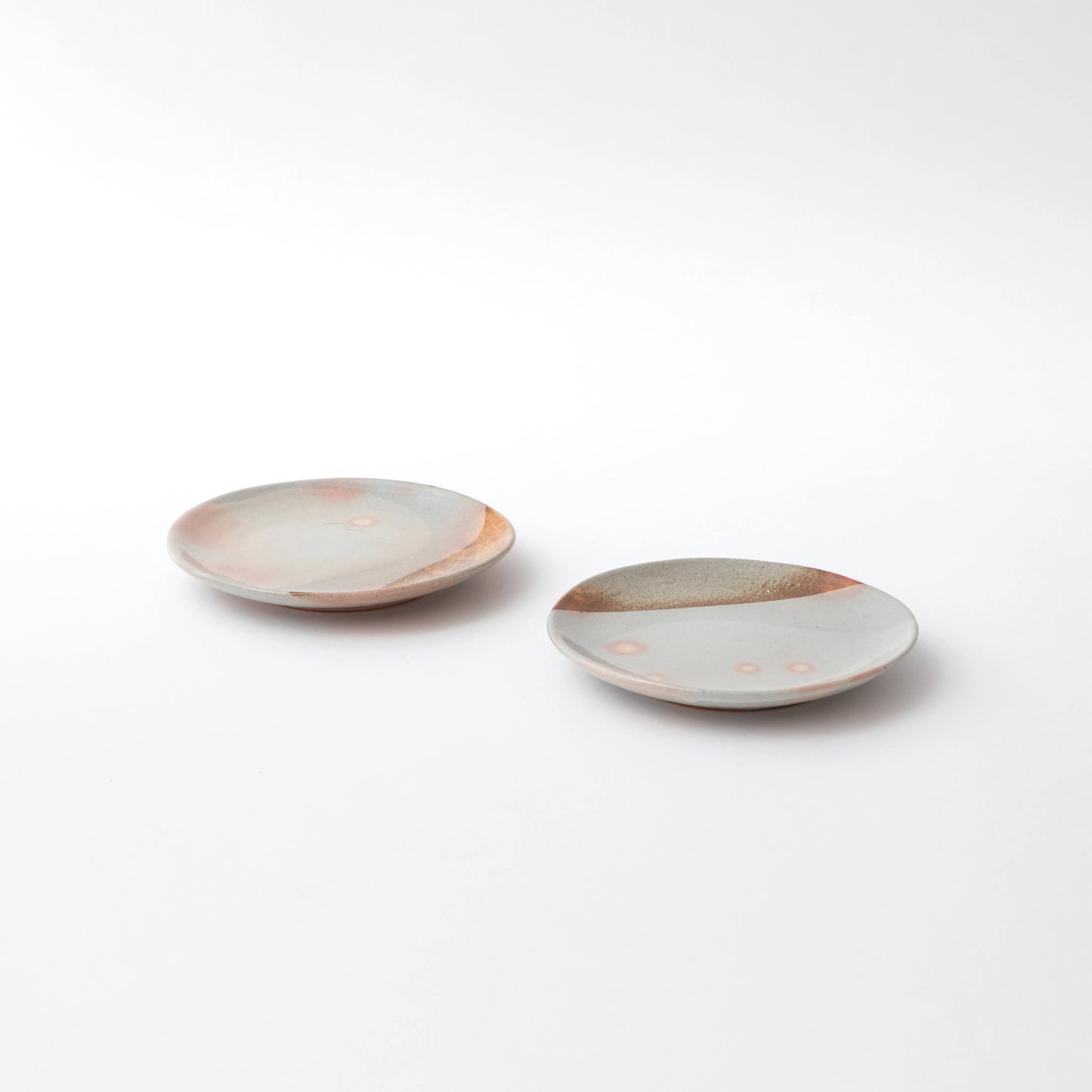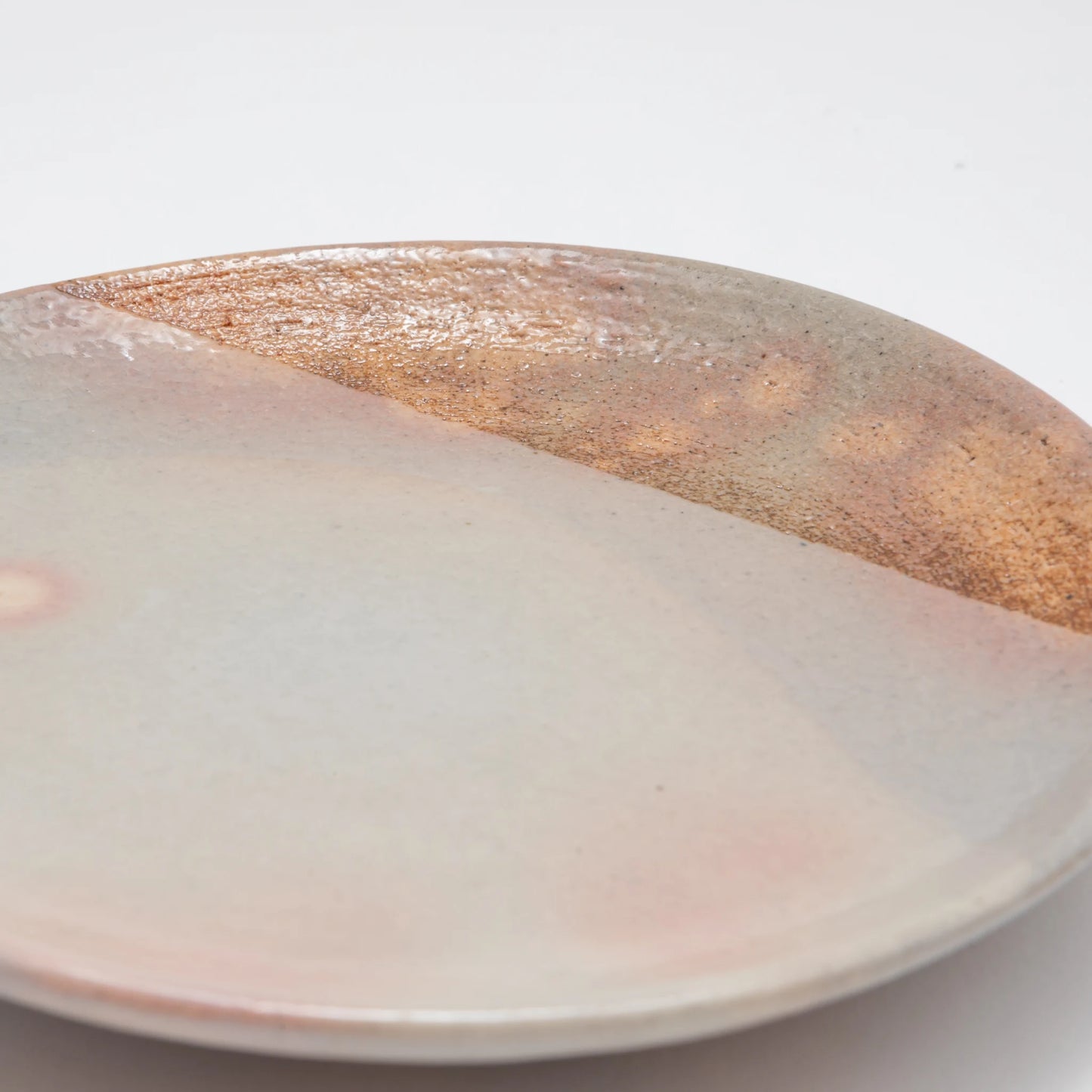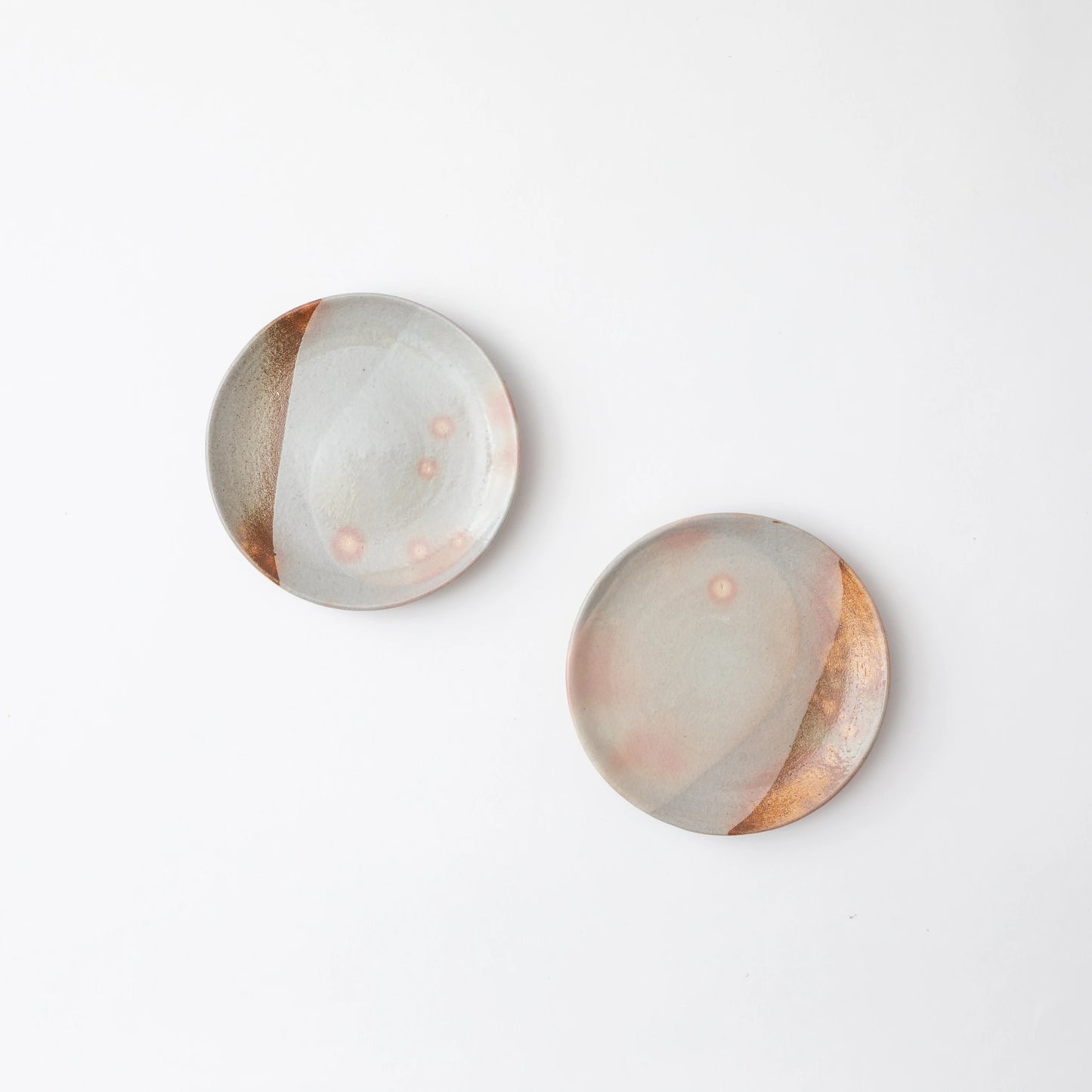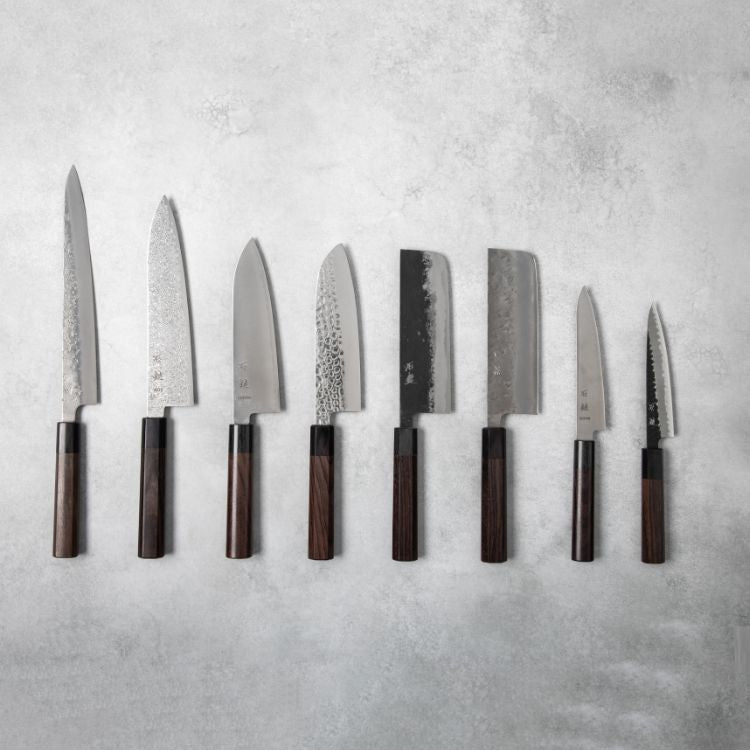Hagi Ware Kakewake Small Plates (Set of 2)
Hagi Ware Kakewake Small Plates (Set of 2)
Only 2 left in stock
Couldn't load pickup availability
A quiet dialogue of earth and fire, these Kakewake small plates are a testament to the Hagi ware tradition. Crafted by Yamato Harunobu Shoroku Kiln—where every step from clay processing to firing is done on site—each plate reveals a unique balance of soft grays, blushed pinks, and burnished copper tones. The subtle divide across the surface, known as kakewake, suggests the passing of time or shifting light, captured in clay.
Ideal for wagashi, condiments, or small offerings, the plates are sized for daily use yet carry the serene weight of centuries-old craft. Sold as a set of two, no two are ever exactly alike.
Detail
Detail
Care & Use
Care & Use
- Check our tips for care & use.









